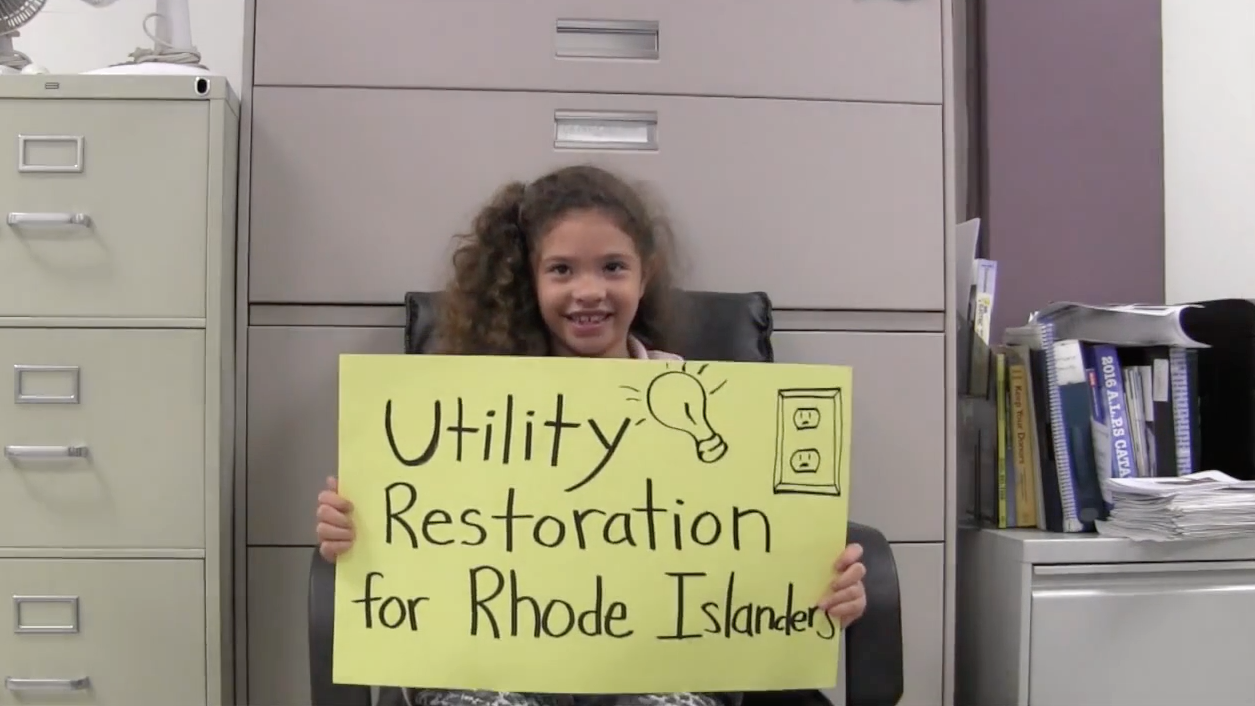Documentary sheds light on impact of utility shutoffs
“Here with you. Here for you.” That’s the tagline of National Grid, the company that provides natural gas and electricity to customers throughout the state. But many of Rhode Island’s low-income or seriously ill residents — who say they’ve had their utility shut off illegally by...
“Here with you. Here for you.” That’s the tagline of National Grid, the company that provides natural gas and electricity to customers throughout the state. But many of Rhode Island’s low-income or seriously ill residents — who say they’ve had their utility shut off illegally by the company — beg to differ.
Some have chosen to share their stories in a short documentary called “The Lifeline Campaign,” which was screened at the Cable Car Cinema in Providence last Thursday.
Moe Tirado — one of the people featured in the film — is a mother of five and native New Yorker who has lived in Rhode Island for thirty years now. When the National Grid shut off her utilities, Moe could no longer use her nebulizer to breathe. She said one of her daughters, who already “feels dark,” struggled even more without light. In the film, Moe described her relationship with the National Grid as a “roller coaster ride.”
“I pulled rabbits without my hat with no lights on! I never knew I had so many tricks. Especially when you got two little ones at home. Survival’s key,” she said.
Moe is one of an estimated 5,000 seriously ill Rhode Islanders this year who are at risk for utility termination because they have not paid their bills, despite being protected by the law. Low-income residents who cannot live without their medicine or medical treatment often have to choose between paying their medical bills or the National Grid bill.
“There is no physician who works for National Grid. So whoever is making these decisions, they’re not a licensed physician, and that really worries me as well.” said Dr. Michael Fine, the former director of the Rhode Island Department of Health.
“The Lifeline Campaign” documentary featured the stories of people, including Moe, who have been affected by the utility shutoffs. The film, created by a group of Brown University students, was sponsored by two Rhode Island nonprofits: the George Wiley Center and the Center for Justice.
“We wanted to bring awareness to that issue, because it’s important for people’s survival in Providence,” said Isabel Debre, one of the students involved in the project. She introduced the film to the audience along with fellow filmmaker Victoria Kidd.
“For me the most difficult thing for me to wrap my brain around is the National Grid is breaking the law and the Division of Public Utilities is breaking the law and they’re detrimentally impacting all of these people’s lives without any repercussions really,” Kidd said.
After the screening, Dr. Fine said although everyone who gets their utility shut off faces challenges, this is especially difficult for people who rely on medical devices like ventilators to maintain their health.
“So all of a sudden, those machines that protect your health stop working,” Dr. Fine said.
He added that without electricity, diabetic patients can no longer refrigerate their insulin and without light, residents cannot read medication instructions at night, among other medical challenges.
A moratorium — or postponement — on utility cutoffs exists between November 15th and April 15th so that residents are not without heat during the winter months, and upon advocates’ request, it has been extended to May 1st. But Dr. Fine says it’s the summer months that he is more concerned about.
“How do we deal with the fact that most of the reported and recorded deaths occur in the heat?” Dr. Fine asked.
Just last year, researchers from the Rhode Island Department of Health and Brown University found that if temperatures continue to rise, like they have in recent years, Rhode Island will likely experience substantially higher morbidity and mortality.
Dr. Fine encouraged everybody at the event to write to the legislature to keep the vulnerable from being left in the dark. A class action lawsuit is currently underway against the National Grid, sponsored by the George Wiley Center and the Center for Justice. Back in November, they succeeded at temporary restoration of utilities for medically protected households. But the plaintiffs say a temporary restoration is not a permanent solution.

